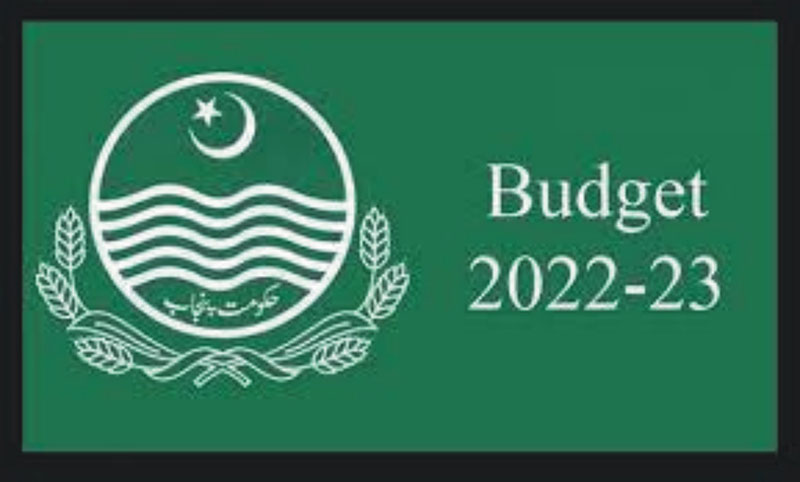The Department of Local Government and Community Development Punjab plays an important role in providing civic services to the people in a planned and coordinated manner to improve their living standards. In the budget presented by the government of Chief Minister Muhammad Hamza Shahbaz, a substantial amount of Rs. 528 Billion. One of the most important local government projects is the master plan for better planning of seven intermediate cities for which the Asian Development Bank is providing US $ 600 million. Rs. 500 million have been allocated in the development budget of the department which will improve the condition of general bus stands of Jhang, Toba Tek Singh, Vehari, Rajanpur, Rahim Yar Khan and Khushab. Another major project of Rs. 500 million is being launched in Narowal, Jhang, Sargodha and Khushab for the improvement of slaughterhouses so that the people can get clean and healthy meat in accordance with the principles of hygiene.
The new budget will cover multiple development schemes in urban and rural areas across the province including sewerage and water supply schemes, roads, streets, public parks, playgrounds, model cattle markets, multi-purpose buildings and waste management, model cemeteries and other miscellaneous municipal services. The department has also launched several foreign-aided projects. In the next financial year, special attention has been paid to provide equal development opportunities in North Punjab, Central Punjab and South Punjab. Work is underway on thousands of small and large development schemes, but the most important of these are as follows:
Punjab Intermediate Cities Improvement Investment Program (PICIIP)
The country is currently facing challenges such as integrated planning, institutional framework for better delivery of civic services, strengthening business processes for better governance and local infrastructure. Government of the Punjab is implementing Punjab Intermediate Cities Improvement Investment Program (PICIIP) in intermediate districts including Sahiwal, Sialkot, Sargodha, Bahawalpur, Rahim Yar Khan and Muzaffargarh with financial assistance of the Asian Development Bank (ADB). PICIIP aims to improve the efficiency and financial sustainability of intermediate cities and effectiveness of urban services through water supply, sanitation, Sewerage system, sewage treatment, solid waste management, transport infrastructure, up gradation of Punjab Local Government Academy Lalamusa and capacity development program. Improved access to clean water, install water reservoirs, water pipes, water meters, pressure gauges, boreholes, water transfer station, rehabilitations of tube wells, turbine pumps and motors. Improved sanitation operations Install centralized sewerage treatment plant (STP), rehabilitation of disposal station, replacement of sewer pipes, provision of missing equipment for sewage water management, unblocking of local drains, improved access to urban public spaces and transport services. Rehabilitation of parks and green belts, improvements of major streets, footpaths and bus terminals is also part of major targets of PICIIP.
Punjab Cities Program (PCP):
The program aims at improving governance, institutional development of 16 cities in the province, provision of efficient services, provision of sustainable municipal infrastructure, increase in thei sources of revenue and efficient use of resources. Cities have been selected in North, South and Central Punjab on the basis of population growth and their economic potential. Target cities include Okara, Kamalia, Muridke, Hafizabad, Kamoki, Jaranwal, Gojra, Jhang, Daska, Wazirabad, Jhelum, Vehari, Burewala, Khanewal, Bahawalnagar, Kot Addu and some selected municipalities of Punjab except those falling under the World Bank funded PCGIP and PICIIP. In this program, infrastructure projects in the areas of water supply, sewerage, solid waste management, road construction, drainage, public parks, street lights and other development projects have been initiated in collaboration with the World Bank. Main stakeholders of this program include LG&CD Department, Finance Department, Punjab Local Government Board, 16 Municipal Committees and Punjab Municipal Development Fund Company. Result areas of PCP include investment planning and budgeting, Human resource strengthening, own resource revenues, procurement, financial management and audit, environmental and social management, transparency and accountability, operation specific and urban infrastructure.
Punjab Rural Sustainable Water Supply and Drainage Project (PRSWSP):
This important project will benefit about 2,000 villages in 16 selected tehsils of Punjab. The World Bank and the Punjab Government have been instrumental in providing clean drinking water, drainage and sanitation. Will be promoted and there will be a reduction in issues such as epidemics and environmental pollution.
Model Cemetery Program:
To this end, the Punjab Shehr-i-Khamoshan Authority (PSKA) has launched a program across Punjab covering issues such as graveyard walls, dignified burial of the deceased, excavation of graves, uniformity of grave size and installation of inscriptions. This will also reduce the illegal occupation of cemetery lands and will remove the obstacles that people face in burying their loved ones.
Digitization Project:
This is the age of information technology. The program will strengthen all local governments across the province, including the local government department, to replace the existing traditional system of hygiene and solid waste management, human resource management information system and biometric attendance by making most of the official business paperless. Bids for collection of taxes and fees, e-auction, e-billing system, building control management system, financial management system, water supply and disposal system, asset management information system, postal management system, grievance management system and human system are salient features of the digitization project. Planning and management of resource performance is an important component of digitization after which the quality and speed of local government services will be greatly improved.
Walled City Lahore Authority (WCLA):
The authority is working to restore historic buildings, monuments and open spaces within Old Lahore. In addition, the authority has taken effective measures to preserve the region’s ancient heritage, which will certainly help boost the tourism-related economy. By amending the law, the scope of WCLA’s activities is being extended to the entire province.
Establishment of Model Cattle Markets:
Model cattle markets with modern facilities have been set up in Sheikhupura, Faisalabad, Attock and Chichawatni while Multan and Arifwala are under construction. These have turned into the best livestock business centers where farmers are getting information and other ancillary facilities to raise and sell their livestock effectively.


